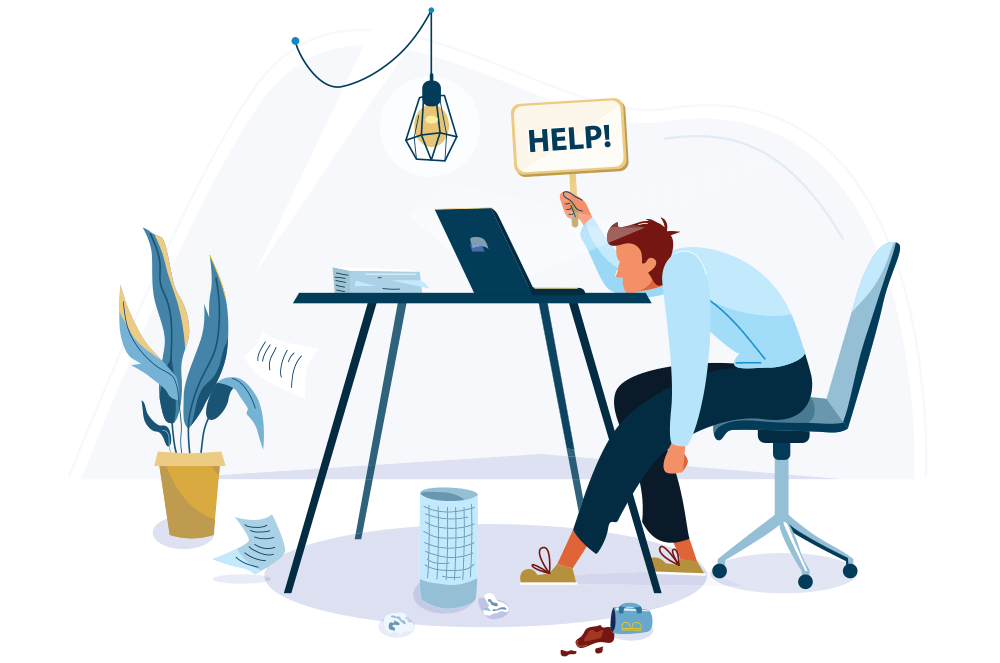
A few years ago, a massive physical, mental, and emotional burnout hit me. I was battling constant sickness, persistent neck and back pains, uncontrollable emotions, and an utter lack of energy. Dragging myself out of bed seemed impossible.
No experts could find any solutions, and eventually I took matters into my own hands, embarking on a journey of self-discovery, and ultimately becoming a certified health and performance coach. It was then that I unraveled the truth: The source of my troubles lay in my lifestyle.
Somehow I’d never considered that immersing myself in work could trigger such severe health issues. But thinking back to my lifestyle then, it becomes obvious it wasn’t the best: I’d wake up, immediately reach for coffee, and plunge headfirst into work, rarely leaving my home office and delaying meals and breaks until late. Throughout the day, my husband would send gentle nudges for me to step outside, breathe some fresh air, or move a bit, but I’d always counter with the same excuse: “I don’t have time.”
Eventually, I had no hobbies or passions left, and my relationships suffered. As terrifying as it was, I had to quit my successful career to regain my health and find out what truly mattered to me. It was while I was learning about human physiology and psychology that I started questioning: “Can we chase big dreams and still lead a balanced life?” I can now confidently say it’s entirely possible.
Focusing solely on a goal, whether it’s a desired promotion, weight loss, parenting, or a podium finish, can lead to obsession. Pushing yourself too hard doesn’t guarantee success, and you can’t control outcomes by how much effort you exert. Instead, what you often get is high stress levels and exhaustion.
In this episode of The Toastmasters Podcast, Olya Amelina shares some techniques to help you find a balance to achieve your goals while avoiding burnout.
Slowing Down to Speed Up
Instead of obsessing over your goal, think of it more as a lighthouse guiding you in the right direction. Keep your focus on the tasks that structure your day. Your daily actions and routines actually shape a supportive environment, gradually helping you progress toward your goals in small, manageable steps.
Consider one of my clients, a working mom preparing for an athletic event. Her mindset was always “the harder I work, the better I’ll become.” So she pushed herself through six training sessions a week, two hours each, despite feeling hungry or exhausted after a busy day at work. She said she often felt moody and over-emotional; she lacked energy and was constantly hungry. On top of that, her joints were continually aching. You could say that her body screamed for help.
We began by cutting down her training to a few days a week to allow her body time to recover. Simultaneously, we focused on improving her sleep quality and crafted an evening routine—she would put her phone away as soon as she got home from work and spend time cooking with her toddler. After putting her child to bed, she ended her day with calming activities like reading a magazine, listening to soothing music, and taking a relaxing shower.
After mastering the bedtime routine, her energy levels began to grow. With this, we gradually reintroduced her intense training sessions but moved them to the mornings to fit better in her schedule. We simultaneously homed in on her nutrition to ensure she stayed fueled throughout the day and during her workouts. After a few weeks of adjustments, her performance improved significantly.
When the day of her event arrived, despite training less and sleeping and eating more, she experienced zero joint pain, was more energized, less stressed, and had better control over her emotions and daily routine.
When you only focus on your big goal, daily tasks get pushed off, and they start piling up. Sooner or later, they can make your life much harder than it needs to be.
In this Toastmasters Podcast episode, business coach Sara Mayer provides tips for how to keep burnout at bay.
The Importance of a Simple Routine
Daily routines are powerful tools if you tailor them to your needs and desires. They enable you to make the most of your time, saving you mental energy and providing clarity about your day. Moreover, routines create space for things that are important to you, such as friends, charity work, or mastering a new skill. If you feel like you don’t know where your time goes, it may help to write down everything you do in a day for a few days. Being aware of your schedule allows you to accomplish what truly counts, and it becomes much harder to get stuck mindlessly scrolling on social media.
There’s no one-size-fits-all “magic routine” that guarantees success or peak performance. We’re all unique, so the routines to support our individual needs and desires will vary.
Your daily actions and routines actually shape a supportive environment, gradually helping you progress toward your goals in small, manageable steps.
For example, I worked with a client eager to boost their daily productivity. Brainstorming ideas to improve their daily flow, we identified two things: 1) their energy peaked in the morning, and 2) their overloaded inbox and ignored personal tasks were causing stress. Together, we came up with the following morning routine: 30-45 minutes for emails straight after waking up, then breakfast, followed by 30 minutes for personal tasks, a morning run, and a shower. Handling emails and personal tasks early provided a sense of accomplishment and set a positive tone for the day. Breakfast and a run meant they were taking time for themselves first thing in the morning.
However, another client aspires to run a successful business. He chooses not to start working until after he takes his children to school and has breakfast with his wife. Those morning moments with his family are crucial for him since he travels extensively and often works late. His morning routine allows him to balance work and family, ensuring he doesn’t spend all his time working.
Two similar goals, two very different morning routines. Yet both ended up working well and allowing each of my clients to achieve what they wanted.

Choosing Your Routine
Convinced and ready to give designing a daily routine a shot?
First, begin by taking care of yourself. Basic needs are often overlooked when pursuing ambitious goals: eating healthy and regularly, sleeping well, resting adequately, and learning to control your thoughts and emotions.
The best way to establish a new routine is to add one action to another, something that isn’t too big or too small, something that doesn’t make you feel overwhelmed but gives you a sense of accomplishment.
It helps to consider what basic need you’re currently overlooking, then find some small steps to gradually adjust your schedule. For example, if you know you need to improve your sleep, focus on going to bed 30 (or even 15) minutes earlier every night for one week. The following week, try replacing mindless phone scrolling with listening to calming music. A week later, experiencing increased energy from two weeks of good sleep, add more protein to your breakfast. In the fourth week, try adding a fistful of salad to your lunch for extra vitamins and fiber. And so you persist, and every small win will encourage you to continue.
At some point you’ll have immersed yourself in the process of these small actions so much that they become not just a way of accomplishing your big goal but also about living a vibrant, joyful life.
My burnout ended up turning my life around. Once I recognized the importance of routines and structure, I started helping others design lifestyles that support their goals and allow them to find joy in life. Balancing my business and my own passions is a challenge, and that’s where my daily routines keep me on track.
Olya Amelina is a health and performance coach who helps athletes and business professionals develop daily routines that enable them to take control of their time, maintain high energy levels, and feel good while achieving their big goals. She lives in Germany. Learn more at LinkedIn.
Related Articles

Personal Growth
Are Your Behavioral Patterns Causing Burnout?

Personal Growth
New Habits, New Life

Personal Growth



 Previous
Previous

 Previous Article
Previous Article